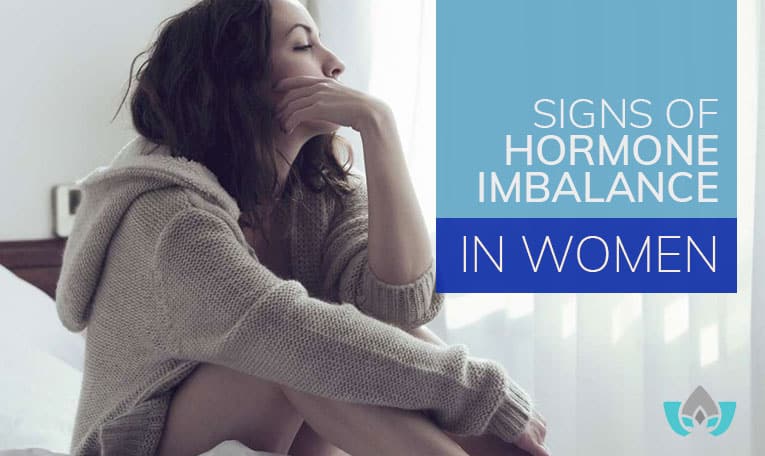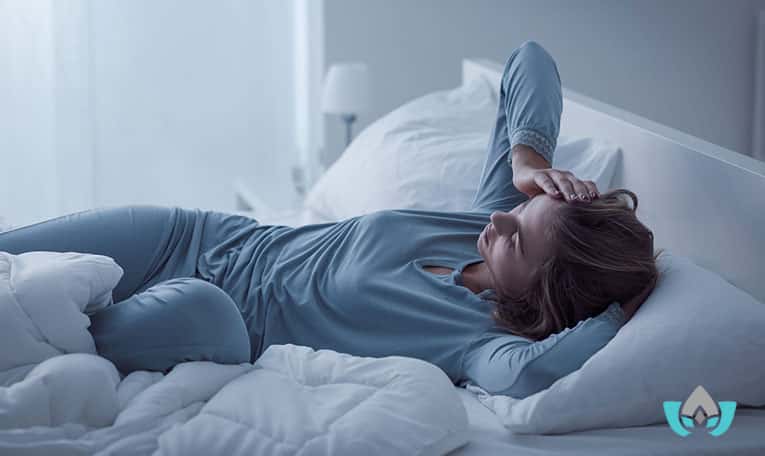
Mood swings, cravings and bloating.
Many women are familiar with these experiences.
But did you know these may be linked to a hormone imbalance?
It’s true, these signs may be traced to the monthly hormonal fluctuations during the menstrual cycle. They may also be linked with pregnancy or menopause.
However, sometimes hormone fluctuations may be the result of something else. It could be an ongoing medical condition, or certain medications.
These may create ongoing symptoms which can interfere with day-to-day life.
Today we’ll look at some of the signs of hormone imbalance in women.
If you’re experiencing any of these symptoms, and can’t figure out the reason, you may want to consider reaching out to a naturopathic doctor for some solutions for hormonal imbalance.
Keep reading to learn what to look out for to determine if you may have a hormonal imbalance.
1. Moodiness
You’re likely familiar with changes in mood which come with getting your period.
Even if you haven’t personally experienced this, there are countless stereotypes of women becoming depressed, irritable, or experiencing mood swings when they have their periods.
This is because some people are affected more deeply by changes in hormone levels, and of estrogen levels in particular. If these changes last beyond your period, however, it could indicate a hormone imbalance.
2. Brain Fog
“Brain fog” is not a medical term. But you can probably tell what it means just by looking at it.
Brain fog refers to difficulty concentrating, memory problems, and an overall lack of mental clarity.
Brain fog is commonly connected with a lack of sleep. But if it becomes persistent, it could be a sign of a hormone imbalance.
Often, it’s linked with the decreased estrogen levels in peri-menopausal and post-menopausal individuals.
3. Irregular Periods
The average menstrual cycle lasts 21 to 35 days. Due to the fact that the menstrual cycle is regulated by hormones, irregular periods can be caused by hormone imbalances.
A 2018 study in the journal BMC Women’s Health showed other factors such as smoking, obesity, and stress were also associated with irregular menstrual cycles.
Menstrual issues are important indicators of women’s health and should not be ignored. If you’re experiencing painful, irregular, or heavy periods, discuss them with your doctor.
4. Vaginal Dryness
Decreased levels of estrogen can lead to vaginal dryness. This can result in thinner vaginal walls and pain during sexual intercourse.
A doctor may prescribe synthetic hormones to combat these symptoms. However, this may be connected with an increased risk of heart attack, stroke, and some cancers for some individuals.
Speak to your naturopathic doctor to explore your options related to vaginal dryness.

5. Chronic Fatigue
Everyone gets tired from time to time. It’s a sign your body is ready for rest. If you’ve been pulling late nights to finish that big project, or just started on an intense new workout regime, it’s normal.
However, those types of tiredness are acute – situational fatigue due to a specific cause.
If you find yourself feeling exhausted for no particular reason, you are likely suffering from chronic fatigue.
This may be caused by hormone imbalances, which can be diagnosed with a blood test.
6. Decreased Libido
Although testosterone is typically thought of as a male hormone, it exists in women as well. And low amounts of it can be linked to reports of low sex drive.
A 2016 study in the journal Hormones and Behavior showed testosterone therapy can increase sexual desire in women.
7. Acne
Acne is something most of us wish we could have left back in high school.
Sadly, that’s not always the case.
You may experience acne breakouts before, during, and after your period. But if you’re dealing with chronic acne, it may be a hormonal imbalance beyond your menstrual fluctuations.
In particular, it may be linked to an excess in testosterone. This can lead to excess oil production, which clogs pores and results in acne.
A 2017 study in the Journal of Clinical and Aesthetic Dermatology showed there is a higher prevalence of acne in women with polycystic ovary syndrome, a hormonal disorder.
8. Headaches
Although there can be many things which trigger headaches, one common cause can be a decrease in estrogen levels.
Many women will experience headaches with their period, and this is a likely explanation for them.
Although over-the-counter medications will be enough for many people, sometimes a doctor may prescribe other medications to help with headaches.
9. Infertility
A common reason some women may have difficulty becoming pregnant has to do with infertility caused by hormonal imbalances.
The journal Nursing Clinics of North America looked at the role of hormones in infertile couples, and the role of hormone therapy to support ovulation.
Quite often, naturopathic medicine can help with infertility due to hormone imbalances.
10. Weight Fluctuations
Women who are going through menopause often find it difficult to lose weight. This is due to hormonal changes in their bodies, including lack of estrogen.
These changes, along with a slowing metabolism can lead to increased fat storage, making weight loss difficult.
If you are having difficulty maintaining a healthy weight, consider contacting a naturopathic doctor for natural weight loss solutions.
Contact The Mindful Healing Clinic
Are you worried you may have hormone imbalances?
Are you having trouble losing weight, difficulty concentrating, or having acne breakouts?
Perhaps your sex life is being impacted by vaginal dryness and a decreased libido.
The Mindful Healing Clinic can help. Contact us today for a free 15-minute consultation, and let us help you get things back on track.
Until next time,
Dr. Maria Cavallazzi, N.D
Mindful Healing Naturopathic Clinic
Mississauga, ON L5M 1L7
(905) 819-8200
► https://g.page/MindfulClinicNaturopathic
Dr. Maria Cavallazzi is a medical doctor from Colombia where she practiced as a family physician for 8 years until she moved to Canada 16 years ago and became a naturopathic doctor in Mississauga.


